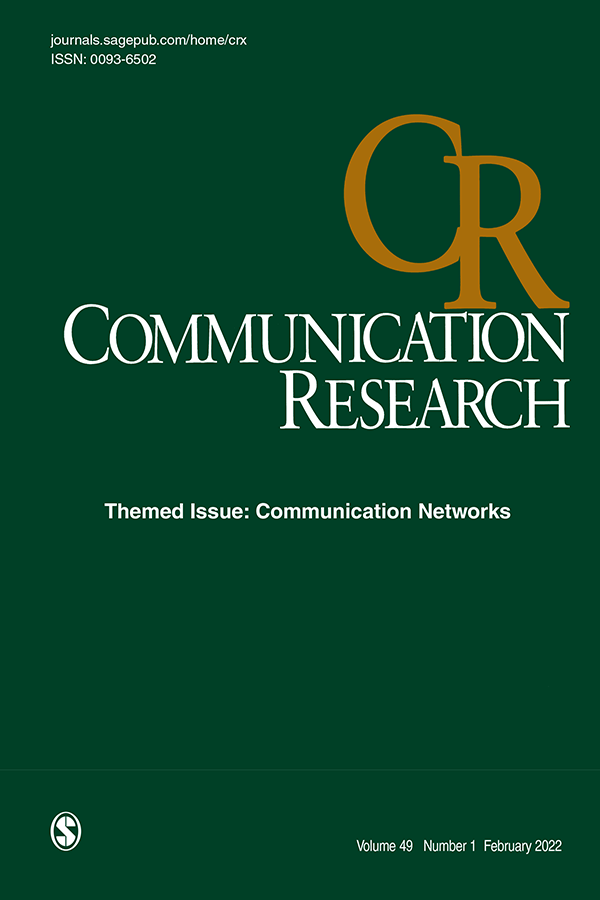The Perfect Li(f)e: A Longitudinal Study on Positive Social Media Content and European Adolescents’ Perfectionism
IF 3.2
1区 文学
Q1 COMMUNICATION
引用次数: 0
Abstract
Youth perfectionism levels have increased significantly over the last decades. Given the dominance of picture-perfect content, social media are often designated as contributors of this rise. Accordingly, this study examined how exposure to positive social media content might increase adolescents’ perfectionistic dispositions and vice versa. Moreover, it was explored whether upward social comparison and adolescents’ individualism values as well as country play, respectively, a mediating and moderating role. A three-wave panel study was conducted among 1,697 Belgian, French, and Slovenian adolescents (完美Li(f)e:积极社交媒体内容与欧洲青少年完美主义的纵向研究
在过去的几十年里,年轻人的完美主义水平显著上升。鉴于图片完美内容的主导地位,社交媒体通常被认为是这种增长的贡献者。因此,本研究考察了接触积极的社交媒体内容如何增加青少年的完美主义倾向,反之亦然。此外,本研究还探讨了向上社会比较和青少年个人主义价值观以及国家是否分别起到中介和调节作用。对1697名比利时、法国和斯洛文尼亚青少年进行了三波面板研究(M年龄= 15.14,SD年龄= 1.78,57.2%为女孩)。在人与人之间的层面上,结果显示,接触积极内容的程度越高,完美主义程度越高。较高的向上社会比较水平与较高的接触积极内容和社会规定的完美主义水平有关。在个人层面上出现了更复杂的模式,根据所选择的时间间隔、国家和青少年的个人主义价值观,结果不同。
本文章由计算机程序翻译,如有差异,请以英文原文为准。
求助全文
约1分钟内获得全文
求助全文
来源期刊

Communication Research
COMMUNICATION-
CiteScore
17.10
自引率
0.00%
发文量
20
期刊介绍:
Empirical research in communication began in the 20th century, and there are more researchers pursuing answers to communication questions today than at any other time. The editorial goal of Communication Research is to offer a special opportunity for reflection and change in the new millennium. To qualify for publication, research should, first, be explicitly tied to some form of communication; second, be theoretically driven with results that inform theory; third, use the most rigorous empirical methods; and fourth, be directly linked to the most important problems and issues facing humankind. Critieria do not privilege any particular context; indeed, we believe that the key problems facing humankind occur in close relationships, groups, organiations, and cultures.
 求助内容:
求助内容: 应助结果提醒方式:
应助结果提醒方式:


